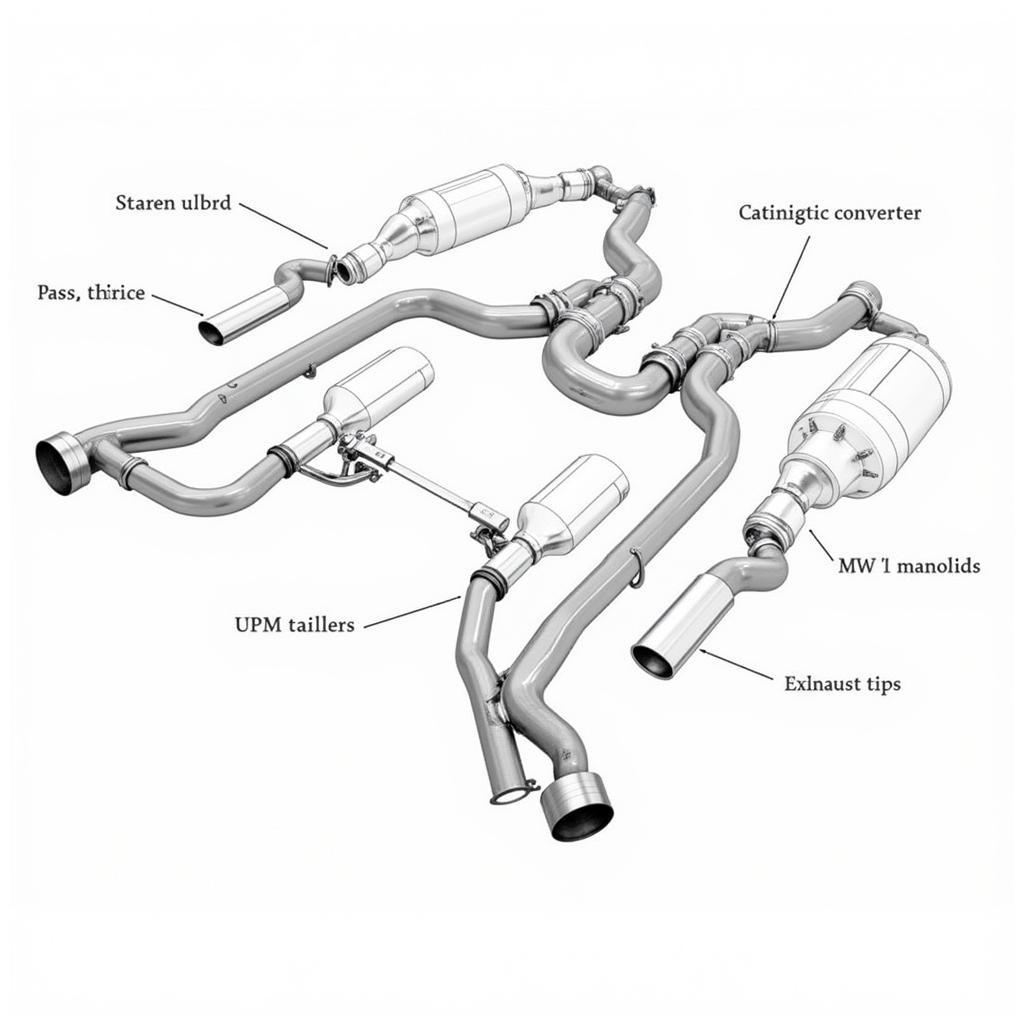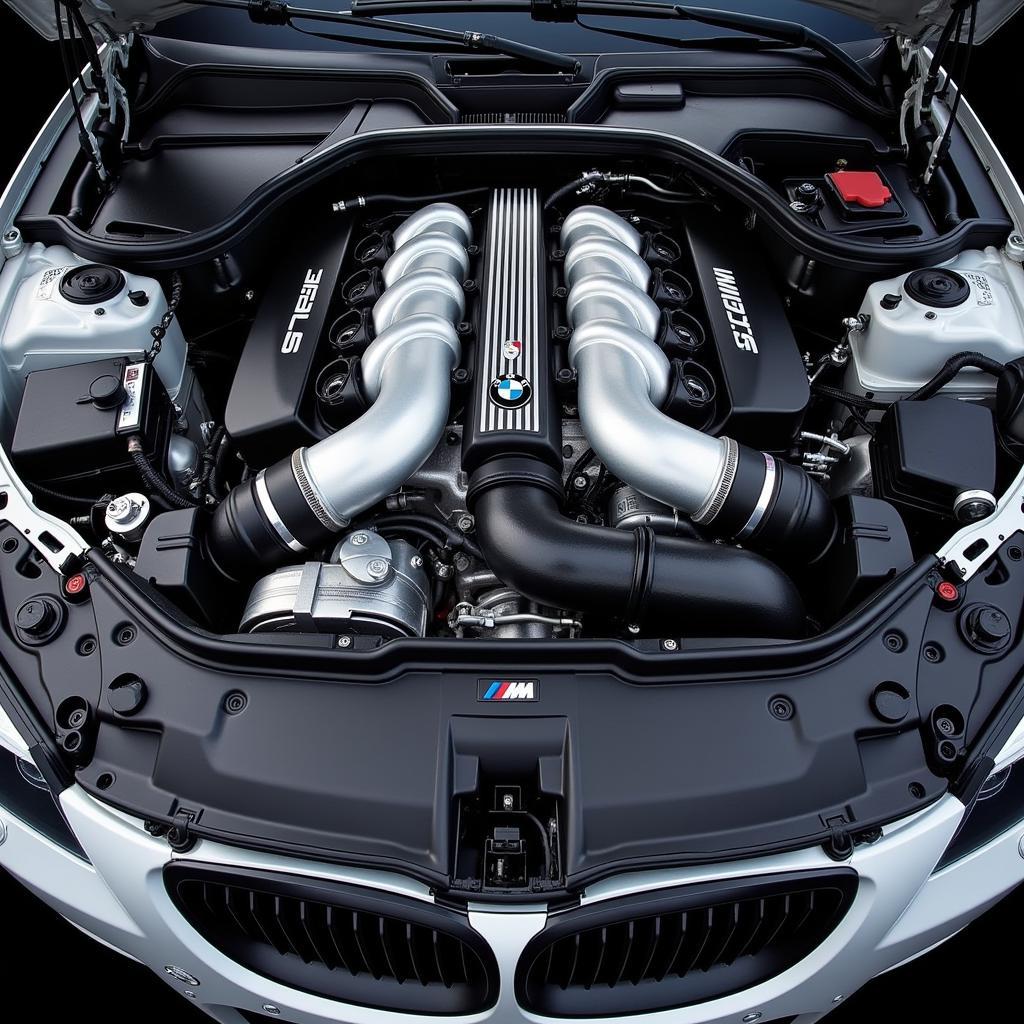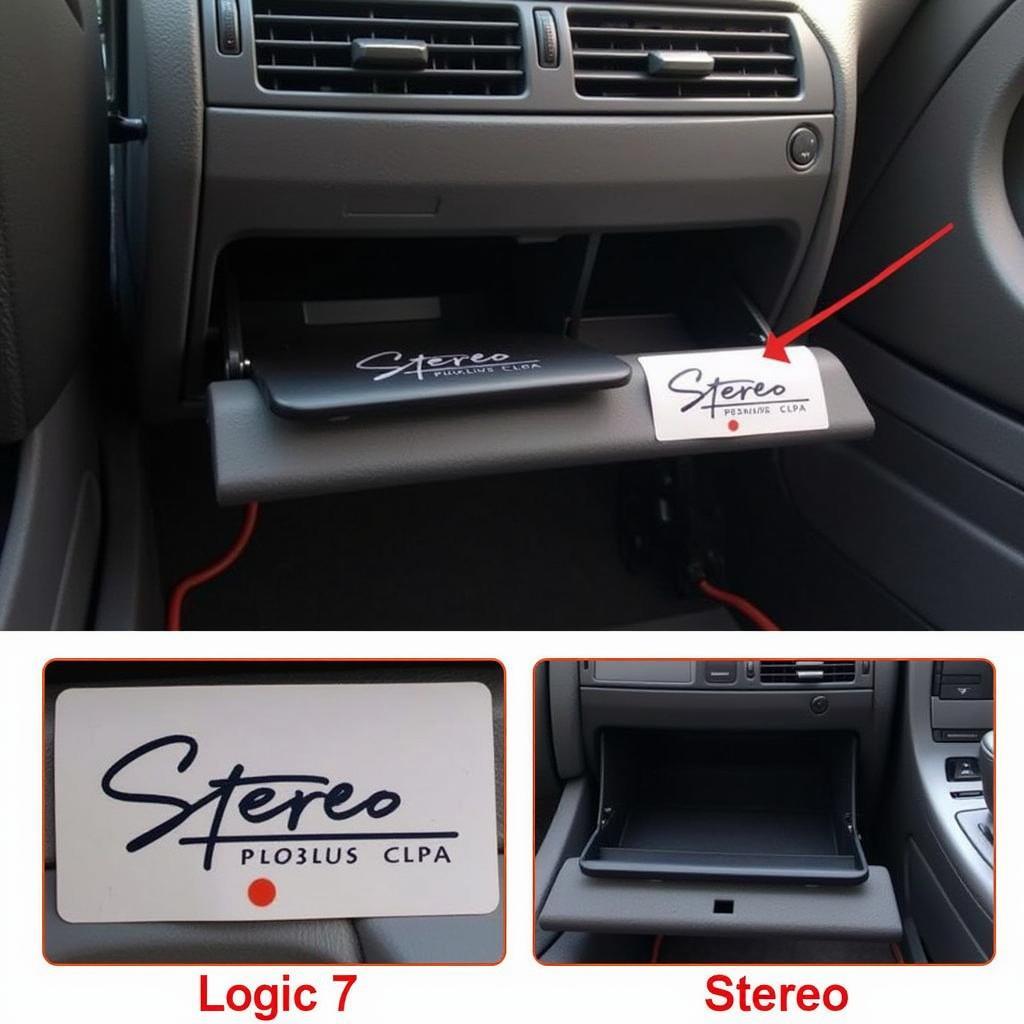The BMW M5 E60 sound is legendary. Its naturally aspirated V10 engine produces a distinctive high-pitched wail that’s instantly recognizable and often imitated, but never duplicated. This article delves into the intricacies of the E60 M5’s iconic sound, exploring its origins, variations, and common issues that can affect it.
The heart of the E60 M5’s sound is the S85 engine, a 5.0-liter V10 masterpiece. This engine, unlike many of its contemporaries, doesn’t rely on forced induction. This naturally aspirated design allows for a more linear power delivery and a cleaner, more unadulterated sound. From the low rumble at idle to the screaming crescendo at the redline, the S85 provides a truly unique auditory experience.
Decoding the BMW M5 E60 Engine Sound
What makes the BMW M5 E60 sound so unique? The answer lies in the combination of several engineering marvels. The high-revving nature of the V10 engine, combined with its ten individual throttle bodies, contributes to its crisp throttle response and distinct sound signature. The engine’s unequal-length intake runners create a symphony of harmonics, resulting in the complex and layered sound that enthusiasts adore.
Common BMW M5 E60 Sound Issues
While the S85 is a remarkable engine, it’s not immune to problems. A common issue that can affect the BMW M5 E60 sound is exhaust leaks. These leaks can create a hissing or ticking noise, disrupting the otherwise harmonious exhaust note. Another potential culprit is a faulty throttle position sensor, which can lead to a rough idle and a less refined sound.
 BMW M5 E60 Exhaust System Diagram
BMW M5 E60 Exhaust System Diagram
Regular maintenance is crucial for preserving the iconic BMW M5 E60 sound. Ensuring that the engine is properly tuned and that the exhaust system is in good condition is essential. Addressing any issues promptly can prevent further damage and maintain the car’s performance and characteristic sound.
Enhancing the BMW M5 E60 Sound
Many owners seek to enhance the already impressive sound of their E60 M5. Aftermarket exhaust systems are a popular modification. These systems can range from subtle enhancements to more aggressive setups, allowing owners to customize the sound to their preferences. However, it’s important to choose a quality exhaust system that’s designed specifically for the E60 M5 to ensure optimal performance and sound.
Why Does My BMW M5 E60 Sound Different?
Changes in the BMW M5 E60 sound can indicate underlying issues. A raspier or more tinny sound might suggest an exhaust leak. A noticeable change in the engine’s tone could point to problems with the intake system. If you notice any unusual sounds, it’s crucial to have the car inspected by a qualified technician.
 BMW M5 E60 Engine Bay Overview
BMW M5 E60 Engine Bay Overview
Similar to the bmw m5 e60 sound exhaust, many other performance cars also have distinct sound characteristics. Understanding the nuances of your car’s sound can help you identify potential problems early on. Regular inspections and maintenance are vital for preserving the performance and longevity of the E60 M5’s powerful engine.
The Future of the BMW M5 Sound
While the E60 M5’s naturally aspirated V10 is a thing of the past, its sound continues to resonate with enthusiasts. As BMW moves towards turbocharged and electrified powertrains, the focus has shifted from pure engine noise to a more synthesized sound experience. While these newer models may offer impressive performance, they lack the raw, visceral sound of the E60 M5. This makes the E60 M5’s symphony of power even more special and cherished by those who appreciate the art of internal combustion.
The bmw e60 m5 exhaust sound continues to be a talking point among car enthusiasts. This iconic sound is a testament to BMW’s engineering prowess and a reminder of a golden era of naturally aspirated engines.
In conclusion, the BMW M5 E60 sound is a defining characteristic of this iconic sports sedan. Understanding the intricacies of this sound and addressing any potential issues promptly is crucial for preserving this automotive masterpiece. This car truly embodies driving performance at its finest. From the rumble at idle to the breathtaking crescendo at high RPMs, the E60 M5’s distinct acoustic signature is a testament to its unique engine and a legacy that lives on.
FAQ
-
What makes the BMW M5 E60 sound so special? The combination of a high-revving naturally aspirated V10 engine, ten individual throttle bodies, and unequal-length intake runners creates a unique and complex sound.
-
What are some common sound issues with the E60 M5? Exhaust leaks and faulty throttle position sensors can affect the car’s sound.
-
How can I enhance the sound of my E60 M5? Aftermarket exhaust systems can enhance the sound, but choose wisely for optimal performance and desired sound.
-
What could a change in my E60 M5’s sound indicate? Changes in sound could signify issues with the exhaust or intake system and should be checked by a technician.
-
Why is the E60 M5’s sound considered iconic? Its naturally aspirated V10 produces a raw, visceral sound that’s increasingly rare in the era of turbocharged and electrified engines.
-
How do I maintain the E60 M5’s unique sound? Regular maintenance and addressing any issues promptly are crucial for preserving the car’s performance and characteristic sound.
-
Is the E60 M5’s sound difficult to replicate? Yes, its unique combination of engineering and design makes it incredibly challenging to replicate.
For any assistance or inquiries, please contact us via WhatsApp: +1 (641) 206-8880, Email: CARDIAGTECH[email protected] or visit us at 276 Reock St, City of Orange, NJ 07050, United States. Our customer service team is available 24/7.

